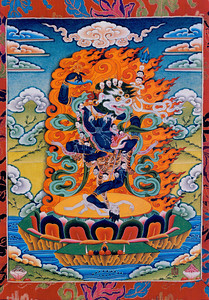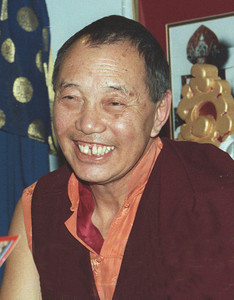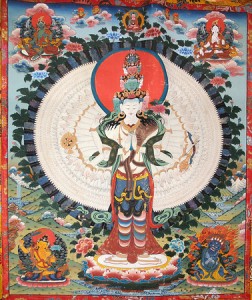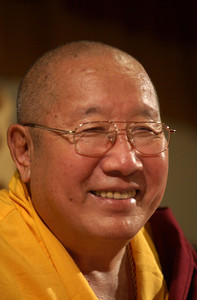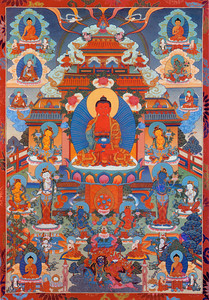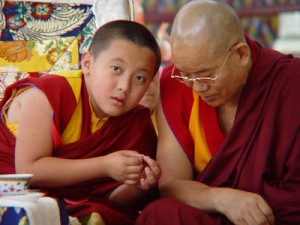
An excerpt from a teaching by Jetsunma Ahkon Lhamo from the Vow of Love series
The precepts that the Buddha laid down are real and workable for everyone. You don’t have to be a Buddhist to hold to these precepts. One of these is the realization that all sentient beings want to be happy, yet don’t have the skills or knowledge to achieve happiness. Another is the realization that because of our ineptness at capturing that happiness we make ourselves sad. In fact, the Buddha teaches us that all sentient beings are suffering because we don’t know how to attain happiness.
You don’t have to be a Buddhist to notice this is true. You don’t have to be a Buddhist to look around you, if you are willing to look with courageous eyes, and see that this is so, and you don’t have to be a Buddhist to use the antidote. That antidote is purity of conduct. It is purity in practice, whatever your practice might be. The antidote is the realization of compassion, which should be the core of one’s life. Of course, the Buddha’s teaching is more involved than this, but still one does not have to be a Buddhist to hold to these teachings. They are universal.
If you have been studying Buddhism for some time, you may think you have already learned the Buddha’s basic teachings that all sentient beings are suffering, that there is an antidote to suffering, that all sentient beings are trying to be happy, and that one needs to hold a compassionate viewpoint. But this is not true. You still need to hear these things.
No matter how long I teach, and no matter whom I teach, whether they are brand new to anything metaphysical, or whether they’ve gone on 20-year retreats, I will always address first and foremost the root reasons why one should practice. These basic beliefs are the foundational viewpoint that will encourage you to keep practicing, and, most especially, to keep practicing the idea of compassion.
There is never a time on your path when this is no longer necessary. In fact, the further you go on whatever path you choose – and specifically on the Buddhist path – you will meet up with challenges. You will invariably meet obstacles that make you feel tired and unwilling to go on. You will feel the pressures of living in the material world, especially living here in the West where we are so busy. It is a stretch to be a person committed to a spiritual path, whether it is the Buddhist path or not. It is a stretch because most of us have to earn a living and raise our families, and do all those things that are so time consuming. It is easy to fall back and say, “I’ll wait until later. I will wait until I’m older and more settled, or less busy.”
It is good to hear the Buddha’s foundational teachings. You shouldn’t think that if you’ve been a long-time Dharma student you are beyond all this. If you think that, then I have to tell you from my heart that you have a problem. I don’t think that, and I don’t know of any teacher who thinks that. Every teacher I have ever spoken to has told me to teach compassion first. Teach first the foundational teachings, and keep on that throughout your whole involvement with the Buddhist path.
© Jetsunma Ahkön Lhamo

